We are delighted to announce that the first ever IBIL PhD Student Conference will be held on Wednesday 22nd June 2022, between 9:30am and 5:00pm, at UCL Faculty of Laws, Bentham House, London.
About the Conference
UCL Laws' Institute of Brand and Innovation Law (IBIL) is inviting applications from intellectual property-focused PhD students to join its inaugural PhD conference on 22 June 2022. This in-person event aims to provide IP students with an opportunity to meet others who are researching similar topics and to present their research in a friendly and supportive environment, with experienced IP academics on hand to provide guidance and feedback to participants. The conference will be followed by IBIL’s Annual Sir Hugh Laddie Lecture, and registration for the conference will include a place at this prestigious evening event.
There will be a prize for the best conference paper and those who have presented at the conference will also have the opportunity to submit their paper to UCL Laws' open access, peer-reviewed journal, the Journal of Law and Jurisprudence.
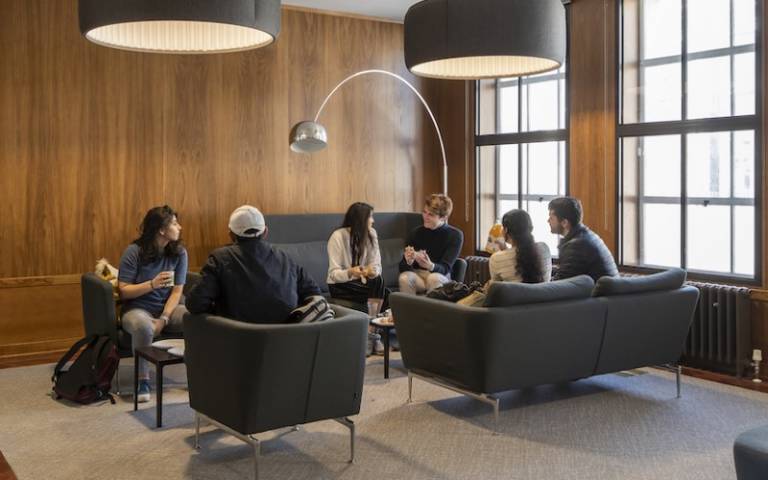
Call for Submissions
The call for submissions from those who are interested at presenting an aspect of their PhD research at the conference has now closed.
Registration for Attendees
We have now opened up registration for PhD students who wish to attend the conference. You can download the full Conference Programme here. If you would like to attend, then please email: ibil@ucl.ac.uk. Your email should confirm your place and year of study, the title of your PhD project and the name of your supervisor/s.
- Our Keynote Speaker
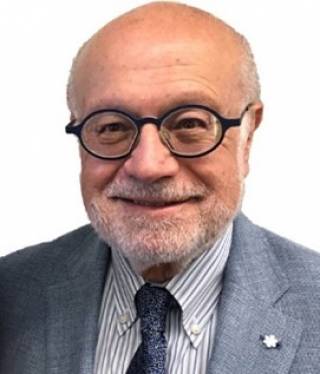
Professor David Vaver obtained an LL.B. from University of Auckland, a J.D. from the University of Chicago and an M.A. from the University of Oxford. He was the first holder of the chair in Intellectual Property & Information Technology Law at the University of Oxford, where he also directed the Oxford IP Research Centre between 1998-2007. He is currently Professor of Intellectual Property Law at Osgoode Hall Law School in Toronto, and a Fellow of the Royal Society of Canada and member of the Order of Canada in recognition of his IP work. He founded the Intellectual Property Journal in 1984, from which he retired as editor-in-chief in 2016 but remains on the advisory board. He is a Fellow of the Royal Society of Canada and was appointed in 2016 to the Order of Canada, one of Canada’s highest civilian honours, for his ‘leadership in intellectual property law as a scholar and mentor.’
- The Speakers
Wissam Aoun, University of Windsor, Canada
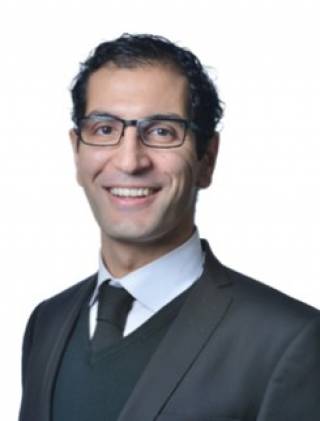
Wissam holds a JD and LLM from the University of Windsor where now works in the Faculty of Law as an Assistant Professor. He is also completing a PhD at Osgoode Hall Law School. Wissam’s PhD research project - ‘International Patent Agency & Patent Discourse' - is investigating the relationship that patent agents/attorneys have with the patent system. He is an experienced intellectual property clinician, has collaborated on research, education and training projects with IP institutions around the world, and has been a visiting researcher at places including the University of Oxford and Max Planck Institute for Innovation and Competition.
Barasha Borthakur, Queen Mary University of London
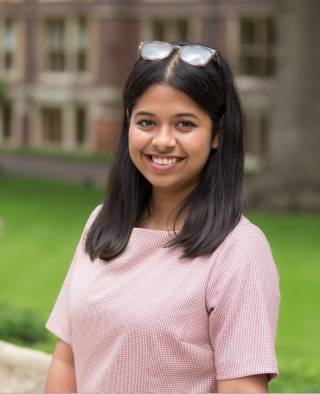
Barasha is Herchel Smith Doctoral Scholar at Centre for Commercial and Legal Studies, QMUL where she is researching whether climate mitigation technologies can be considered as ‘public good’ and climate change as ‘national emergency’ to construe under intellectual property law and non-intellectual property flexibilities in a way to include such technologies. She is a graduate teaching associate of Global IP law at QMUL, and she has also mentored in the area of Climate Change Laws at the School of Climate Change, University of Oxford. She has completed her BA LLB (Hons) from National Law University, Assam (India) and LLM from National Law University, Jodhpur (India) where she was the recipient of ‘Late Smt. Vandana Devendra Mehta Memorial’ gold medal for securing the first position in merit.
Sevra G. Güzel, Hertfordshire Law School
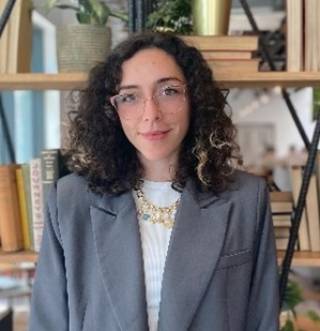
Sevra is a PhD Student at the Hertfordshire Law School. Her project, Challenge of Balancing the Conflicting Fundamental Rights in Online Enforcement of IP Rights, investigates the online enforcement of copyright and the effects of this enforcement on the fundamental rights. This project has been awarded with Hertfordshire Law School PhD Scholarship Award and been presented in various reputable international conferences.
Ashleigh Hamidzadeh, Kings College London

Ashleigh Hamidzadeh holds a Law LLB Honours, a LLM in International Business Law and a MA in International Politics (Globalisation, Poverty and Development) from the University of Newcastle. She is currently pursuing her PhD in Intellectual Property Law at King's College London. She is also a Visiting Lecturer in Tort Law at King’s College London.
Aline Iramina, University of Glasgow

Aline Iramina is a PhD candidate and researcher at University of Glasgow School of Law and UK Copyright and Creative Economy Centre (CREATe), with research interests in copyright, AI and platform regulation. Her PhD thesis is entitled ‘Copyright Governance by Algorithms: Towards a more transparent regime.’ Aline holds an LLM in Intellectual Property Law from UCL and she is a Brazilian lawyer and civil servant in Brazil’s federal government, with previous professional experience in copyright regulation (currently on study leave).
Li Liu, St. Catherine’s College, University of Oxford
Li Liu is a DPhil Candidate in Law at St Catherine’s College, University of Oxford and she is a member of the Oxford Intellectual Property Research Centre. Her PhD research is being conducted under the supervision of Dr Justine Pila.
Matt Malone, University of Ottawa
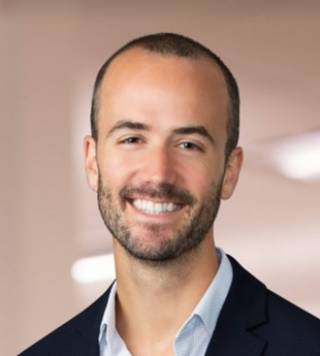
Matt is a Ph.D. student at the University of Ottawa Faculty of Law and an incoming Assistant Professor at the Thompson Rivers University Faculty of Law. Prior to re-entering academia, Matt worked as a lawyer in Silicon Valley where he practiced employment and labor law. Before that, he studied and worked in various places around the world, including Toronto, Berlin, Jerusalem, Tokyo, Riyadh, and Montreal.
Oprah Nwobike, Brunel University
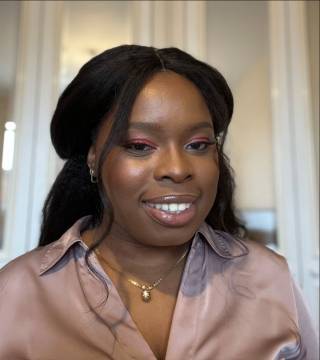
Oprah is PhD candidate in Copyright Law and Artificial Intelligence at Brunel University, London. She holds an LLB (Hons) from the University of Sussex and an LLM degree in International Commercial Law from the University of East Anglia. Oprah also has legal practice experience in civil litigation, commercial and IP law.
Rebecca Owens, University of Liverpool

Rebecca is a PhD candidate in law at the University of Liverpool. She holds an LLM degree (Distinction) and an LLB (Hons) from the University of Liverpool. The University of Liverpool has recognised her exceptional research with a Certificate of Excellence in 2019. She is also the recipient of the John Lennon Memorial Scholarship for her master’s project and the Sir Joseph Rotblat Alumni Scholarship for her PhD research.
Scarlett Swain, Durham Law School

Scarlett is a PhD Candidate and tutor at Durham Law School. She completed the University of London International LLB Programme at the New College of Humanities. Prior to commencing her LLB, she travelled the world and worked as an entrepreneur. Her current research is being supervised by Dr Mike Adcock and Dr Angelia Jia Wang. A continuation from her LLB dissertation on the Lockean theory of property, she plans to challenge the current prohibition on ‘patenting nature’ and then explore the developing industry of cellular agriculture, specifically in regards to the patenting of meat. She plans to conduct an ethical and philosophical analysis on this issue by asking whether utilitarianism justifies the patenting of food produced by tissue engineering and biotechnology patenting more generally.
Marie White, University of Oxford

Marie is a DPhil Candidate in Law at St John’s College, University of Oxford. She obtained her LLB and LLM degrees from the London School of Economics and Political Science and previously worked as a Research Assistant at QMUL and in practice at a leading intellectual property firm. Marie is particularly interested in socio-legal debates in intellectual property law, her doctoral research focusing on the implications of approaches to branding as a practice in sociology, cultural and marketing studies for the doctrinal approach to branding adopted by courts and registries in trade mark disputes.
- Our Guest Speaker
Luke Adams is Senior Publisher in Law at Edward Elgar Publishing, where he leads a team of editors and curates the Law publishing programme. Luke began his publishing career in 1997 at Pearson as a Higher-Ed publishing sales rep, before moving into a commissioning role at Elgar, where he first began to develop the Elgar law list. He then spent several years as Senior Commissioning Editor at OUP, before moving back to Elgar in 2011. A particular focus of his commissioning across that time has been in the field of Intellectual Property, and he is passionate about working with and supporting the academic IP community.
- Panel 1 - Copyright Law
Sevra G. Güzel: The Good or The Bad? and The Ugly: German Implementation of Article 17 and Self-Regulation of OCSSPs
As a part of the Digital Single Market Strategy actions to make EU copyright rules fit the digital age, The Directive on Copyright in the Digital Single Market was published in the official journal in 2019. However, Article 17 of this Directive, with its ‘best efforts’ obligations, faced heavy criticism, as in order to realistically fulfil the Article’s requirements, platforms should use automated content recognition tools, namely ‘upload filters’. These technologies have a significant negative impact on users’ freedom of expression which is an important problem that the Member States need to consider for their implementations of the Article. With the aim of delivering recommendations for a fundamental rights compliant implementation of Article 17, this article provides different perspectives on Article 17 by examining the German implementation together with the current self-regulation of the online content-sharing service providers (OCSSPs) to provide an insight into the recent picture with Article 17. This implementation has a great significance since it gives the Member States a one-of-a-kind chance to tackle the long-standing issues with striking the fair balance between fundamental rights in the online enforcement of IP rights.
Aline Iramina: Copyright Governance by Algorithms: rules and standards on algorithmic transparency?
This paper has the objective of examining what are the rules and standards on algorithmic transparency that currently apply in the context of copyright governance in the UK and the EU. Following debates on online platforms’ regulation, competition law, data protection and artificial intelligence, more transparency from online platforms, particularly in the use of algorithms, has become a demand of copyright users and creators. Drawing on the concepts of public and social transparency developed by Amitai Etzioni and on his idea that transparency as an alternative to regulation is overvalued, we explore the key legal developments in the EU and the UK that provide for algorithmic transparency rules in order to present a general overview of algorithmic transparency frameworks in the EU and the UK and identify potential legal gaps within copyright law. Overall, it was possible to verify in this study that the focus of most of these regulations is still on intermediary service providers. Moreover, within copyright law, both EU and UK policymakers still focus more on regulating content moderation systems than recommender systems, even though in recent years there are signs that this might be changing.
Oprah Nwobike: Contemporary Legal Challenges in the Meaning of "Author" Within the Context of AI-Generated Works and Copyright Law
Machines creating art, writing poems, composing music, and performing other tasks originally deemed limited to human creativity and intelligence is still a relatively a modern phenomenon that legal systems have struggled to adequately contain. The central inquiry of this paper is how to exactly interpret the meaning and effect of ‘authorship’ in copyright, where AI is used to fully or partly create copyrightable works? A corollary question is predicated on the established notion of law that benefits and burdens go hand in hand: thus, if a human actor is able to claim the creative benefits of AI, will they also be liable in the event the AI activities result to breaches of rights? In that case, who would be sued, and who will pay for damages in the event of liability? This paper re-examines the meanings of copyright and authorship of AI-generated works in light of the current English (and European) legal frameworks with the aim of ascertaining the theoretical legal implications and justifications of deeming AI either as an autonomous or semi-autonomous system, and how all these redefinitions will likely affect the primary rationale behind the copyright protection.
- Panel 2: Trade Mark Law
Scarlett Swain: Oat With the Old, In With the New: Oatly’s Creative Trade Marks, Branding and Controversial Advertising Campaigns
In modern times brands matter, and understandably so, as they have become a staple of business theory and practice and are a defining feature of the modern economy. Big names are all well aware of the power and value that their brands hold. Oatly, the Swedish plant-based company, is now one of the biggest names in the plant-based industry, but their road to success has been a somewhat unconventional one. There is a significant amount that can be learnt from Oatly’s rise to success, especially in relation to their utilisation of trade marks, branding, and controversial advertising campaigns. This paper will provide an overview of Oatly’s growth as a business and brand, and critically examine Oatly’s controversial battles with the Swedish diary lobby, and how ultimately, through a creative use of both trade marks and advertising campaigns, Oatly were able to pro-actively defend against the powerful and influential dairy lobby. From here, this paper will argue that one the key reasons for Oatly’s success was through creating a fundamental, emotional connection between the consumer and the company by successfully implementing a form of brand activism. This paper will contend the fact that trade marks are a means of source identification for a specific brand can be used to protect the consumer while advancing the causes of environmentalism and sustainability.
Marie White: Recognising the Importance of Horizontal Social Distinction
Trade mark law has expanded from being solely concerned with the origin function of marks to incorporating far wider functions such as advertising and investment; it appears to be becoming the law of brands. Within the discourse of other disciplines, such as the sociology of consumption and consumer culture theory, brands are implicated in sustaining forms of social distinction. My doctoral thesis seeks to identify differences in the conception of branding as a social practice in these disciplines and the conception of consumer behaviour used by courts and registries in trade mark decisions through both discourse and content analysis of trade mark decisions where Article 8(5) or 9(2)(c) EUTMR are invoked. Differences between the accounts of consumer behaviours may result in trade mark law inadvertently enforcing a consumption-based system of social distinction by providing only a thin or incomplete account of branding practices. This paper forms part of the first chapter of my doctoral thesis and builds on the work of Veblen and Bourideu on the topic of social distinction and consumption to demonstrate that there are normative codes which determine that certain goods, or indeed brands, are used predominately by individuals belonging to a particular group in a consumption-based system of social distinction. I seek to define this system in both its horizontal and vertical forms, demonstrating that whilst social distinction is multifaceted, it always presents a hierarchy of some form due to snobbery between groups. Despite the flaws present in both Veblen and Bourdieu’s theories, I argue that the two are complementary and when reworked and combined the two can be helpful in understanding modern consumption practices and consumer attitudes to brands. It appears that some of this understanding of consumer behaviour is currently missing from trade mark law theory and doctrine but the extent to which this is the case is not yet clear. My project seeks to address this gap in the literature.
- Panel 3: Patent and Trade Secrets 1
Wissam Aoun: The Hypothetical Infringer? Implications of the Synthesis of Professional Patent Agency and the Anglo-American Hypothetical Person Skilled in the Art
Historical patent jurisprudence abounds with statements that the hypothetical person skilled in the art is not a lawyer. However, recent case law suggests the opposite, going so far as to state that the hypothetical person skilled in the art is expected to consult with a professional patent agent during claim construction. Beginning from the principle that the hypothetical skilled person takes her place among law’s other ‘reasonable people’, this article conducts an analysis of Anglo-American law’s other ‘reasonable people’ to determine what this might tell us about the hypothetical skilled person’s expanding patent law knowledge base. This analysis concludes that in other areas of law, the reasonable person often consults with external legal professionals when her own legal rights and liabilities are at stake. Consulting with external legal experts is meant to guide the reasonable person’s conduct to ensure that her rights are protected or to ensure that she avoids potential legal liability. Correspondingly, if patent jurisprudence posits that the hypothetical person skilled in the art is expected to consult with legal experts when reading and interpreting a patent, then the law treads close to implicitly transforming the hypothetical skilled person into a potential infringer who is reading a patent predominantly as an exercise in avoiding infringement rather than an exercise in knowledge acquisition. This article suggests that the objectives often posited in support of this transformation may be misguided.
Barasha Borthakur: Who Owns What? Patent Landscaping of Environmentally Sound Technologies
Climate change is the common concern of humankind which should be dealt efficiently through international cooperation. Innovations and transfer of environmentally sound technologies (ESTs) are one of the most effective ways to mitigate climate change which have been the prime focus of multiple multilateral agreements and negotiations. The access to such technologies is vital for all the countries, irrespective of their developmental needs, so as to build a legal regime surrounding technology transfer (TT) of ESTs. However, the current claim is that such access is difficult for two reasons: firstly, there is a negligible and inefficient TT of ESTs due to the dearth of international legal instruments; and secondly, the concentration of ESTs lies in the hands of a few countries and/or corporations. In this paper, I argue why it is vital to understand who generates and possesses ESTs, as well as who are the primary technology recipients, in order to properly evaluate the influence of the global IPR regime on development and transfer of ESTs. The overall consensus in the literature tends to be that EST innovation is centered mostly in developed nations. When it comes to TT of these ESTs, the benefits of the transfers are not equally distributed as the key recipients of the same are only a few developing nations. The article contributes to the existing literature in at least three ways. First, in contrast to previous literature done in this field, the current study uses more recent data (using OECD Stats database and INNOGRAPHY (Derwent) database) and time series to investigate the concentration of ESTs; second, the involved ESTs covered by this study reach beyond specific clean energy technologies, covering almost all climate-related ESTs; and third, it uses market mapping to analyse the position of owners of ESTs in the relevant market in question.
Li Liu: Patent quality: A Rabbit Hole
Complaints regarding the surging volume of low-quality patents have gained momentum in the recent decades across the Atlantic. This phenomenon is accused of being harmful in many ways, such as encouraging abuse, sabotaging the patent system, blocking innovation, and raising social and private costs. This paper intends to offer a comprehensive understanding of the patent quality issue. To achieve this goal, it investigates five aspects: the history, the definition, the measurement, the proposals, and the examination. It unveils a vexing situation: the definition is kaleidoscopic, the measurement is problematic, the proposals are precarious, and the approach of intensifying examination is frustrating. This disappointing situation reveals a rabbit hole named patent quality, into which institutions, practitioners, and scholars fall and have been struggling to find a way out.
- Panel 4: Patent and Trade Secrets 2
Ashleigh Hamidzadeh: Direct Infringement of Second Medical Indication Patents and Pharmaceutical Regulation: Is an Integrated Approach Attainable?
The paper examines the compatibility of the direct patent infringement provisions in section 60(1) Patents Act 1977 with pharmaceutical regulations and practice in the United Kingdom. It assesses whether these two legal frameworks are aligned and considers how greater convergence could provide second medical indication patents with appropriate protection. The regulations and practices governing a medicaments journey from creation to use can be divided into two streams. Pre-marketing approval regulation controls a medicaments entrance into the market; including the requirements of clinical trials and market authorisation. Upon entry into the market, post-marketing approval procedures oversee the prescribing practices of practitioners and the dispensing praxis of pharmacists. The outward presentation approach to direct patent infringement adopted by the majority of the Supreme Court in Warner-Lambert Company LLC v Generics [2018] UKSC 56 establishes that liability will be found if the packaging and labelling of a medicament includes patented indications. The paper examines the relationship between the approaches taken to determining direct patent infringement in the Warner Lambert litigation and the regulations over a medicament’s entry into the market, the regulatory exclusivities available to novel medicaments, as well as the practices followed by actors downstream. In so doing, it proposes a more integrated approach to direct patent infringement and pharmaceutical regulation.
Rebecca Owens: Dissecting Biotechnological Research: A Microscopic Look at the Experimental Use Exception
Foundational biotechnological research tools such as CRISPR are frequently removed from open science to be patented and 'monopolised' by their inventor. However, due to the nature of biotechnological research, access becomes necessary for innovation to occur and is privately leveraged through licensing. A growing body of evidence suggests that broad biotechnological patent claims, thickets around crucial technology and the associated transaction costs with negotiating licenses can affect scientific researchers and slow innovation. To mitigate this, the UK has a long tradition of providing an experimental use exception to patentee rights for the purposes of experimentation. The exception has attracted considerable scholarly attention in the US, but the UK's provisions have received significantly less interest. This paper addresses this by systematically evaluating the applicability of the exemption to biotechnological research tools and considering its efficacy in preventing the paralysation of scientific progress. Recently, there has been renewed scholarly and public interest in facilitating access to scientific research in light of the COVID-19 crisis. Therefore, this research provides a timely and necessary evaluation of the research exemption and offers pragmatic suggestions for further research.
Matt Malone: A Framework for Public Interest Limiting Principles in Trade Secret and Confidential Information Decisions
This paper proposes a framework for the consideration of competing public interests in decisions to grant legal protections to trade secrets and confidential information. It argues that there is a meaningful role for public interest analysis in the adjudication of such decisions. Although this consideration has primarily arisen in the past as a defense in cases of publication, a competition of public interests has always been imminent to the law. After exposing this key aspect of the law, the paper reviews the two normative accounts for trade secret and confidential information law: deontological justifications, which maintain the law is necessary to enforce and deter certain conduct; and utilitarian justifications, which claim the law incentivizes innovation. The paper argues the utilitarian account is superior in the modern context and should be privileged to better consider and reflect public interests. Following this argument, the paper takes a prescriptive approach and proposes a balancing test to recognize the competition of public interests imminent to the law in an overt and intentional manner. It argues this balancing test is consistent with the foundations of the law and can redress procedural flaws that weaken consideration of certain public interests.
- The Discussants
Professor Tanya Aplin, Kings College London
Professor Phillip Johnson, University of Cardiff
Dr Luke McDonagh, LSE Law School
Dr Marc Mimler, The City Law School
- The Panel Chairs
Joshua Bradley, UCL Laws

Josh Bradley is a licensed US attorney and former USPTO patent examiner and engineer, who holds a BS in engineering from the Missouri University of Science and Technology, a JD/MBA from Saint Louis University and an LLM in intellectual property law from the University of Turin/WIPO. Josh was awarded an IBIL Scholarship in 2020, and he is now in the 2nd year of his PhD. He is researching patent subject matter eligibility, and hopes that his research will advance an effort to reform the current ambiguous standard of determining eligibility with a more harmonized, certain, and predictable version of this complex area. The information age has ushered in new importance on data and information inventions – like Internet, software, and business method technologies – meaning that the subject matter eligibility rules of patent law may need to adapt, in the United States and globally, to incorporate these non-traditional inventions.
Luminiţa Olteanu, UCL Laws
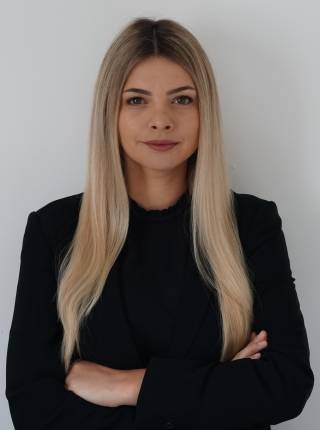
Lumi Olteanu joined UCL in 2018 having been awarded an IBIL scholarship to conduct her research. She holds an LLM from Kent Law School (Distinction) where she was awarded the Oxford University Press Prize for Academic Excellence in the LLM, and a LLB from the University of Bucharest. Lumi is currently working part-time as a Lecturer at the University of Kent. Lumi qualified as a lawyer in Romania in 2011 and practiced across a variety of legal areas including but not limited to intellectual property law, data privacy, arbitration, commercial law, corporate law and competition law. Lumi’s PhD research seeks to critically analyse the concept of 'reputation' as a requirement for anti-dilution protection and to challenge its relevance and justifications in parallel with how reputation is created through consumers’ labour.
Felipe Osorio-Umaña, UCL Laws
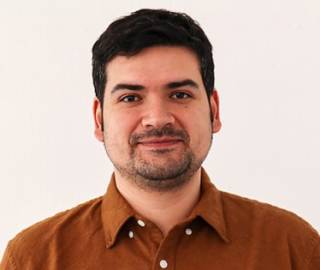
Felipe Osorio-Umaña joined UCL in 2019 having been awarded a UCL Faculty scholarship to conduct his research. He holds an LLM from Kent Law School (Distinction), and an LLB (2017) from the Universidad de Chile (Distinction). Felipe qualified as a lawyer in Chile in 2018 and worked across a variety of legal areas in the private sector including copyright, trademark law, data privacy, and corporate law. He has also worked for NGOs focusing on access to public information and citizen participation. Felipe's PhD research critically analyses how fundamental rights can limit copyright expansion, focusing on their influence on copyright exceptions and limitations.
Alina Shchetinina, UCL Laws

Alina Shchetinina is a PhD candidate in Law and an IBIL scholarship award winner at UCL. She holds an LLM from the University of Vienna (Distinction) where she obtained a grant from the Higher Education Scholarship Foundation for Law Students. Alina obtained both her Bachelor (Distinction) and first Master (Distinction) Degrees at the Yaroslav the Wise National Law University of Ukraine. Prior to joining UCL, she worked as the Senior Legal Counsel at a German-based tech company. Her research explores the impact of the dilution doctrine on the right to free speech.
- About the UCL Institute of Brand and Innovation Law
Since its foundation in 2007 by Professor Sir Hugh Laddie, the Institute of Brand and Innovation Law (IBIL) at the UCL Faculty of Laws has provided a unique forum for academics, the judiciary, policy-makers, the professions and users of the IP system to come together and exchange ideas on cutting-edge IP issues. The Institute was established with a distinctive objective. IBIL seeks not only to undertake first class academic research, but also to pay attention to the practical application of intellectual property law and to the interests of IP practitioners in this field.
Now led by Professor Sir Robin Jacob, IBIL runs a serious program of events at the highest level, including seminars, public lectures, conferences, workshops on all aspects of IP. Its reputation as a leading European centre for IP allows it to attract distinguished speakers from a diverse range of backgrounds. This provides the ideal forum for key issues to be debated as expert opinion can be heard from contrasting perspectives. It also operates an acclaimed CPD programme.
UCL Laws has deep commitment to the research, study and promotion of intellectual property law. It has become home to a vibrant IP PhD community, supported by IBIL-funded PhD scholarships.
IBIL would like to thank its sponsors, whose generosity has made this conference possible.

 Close
Close

